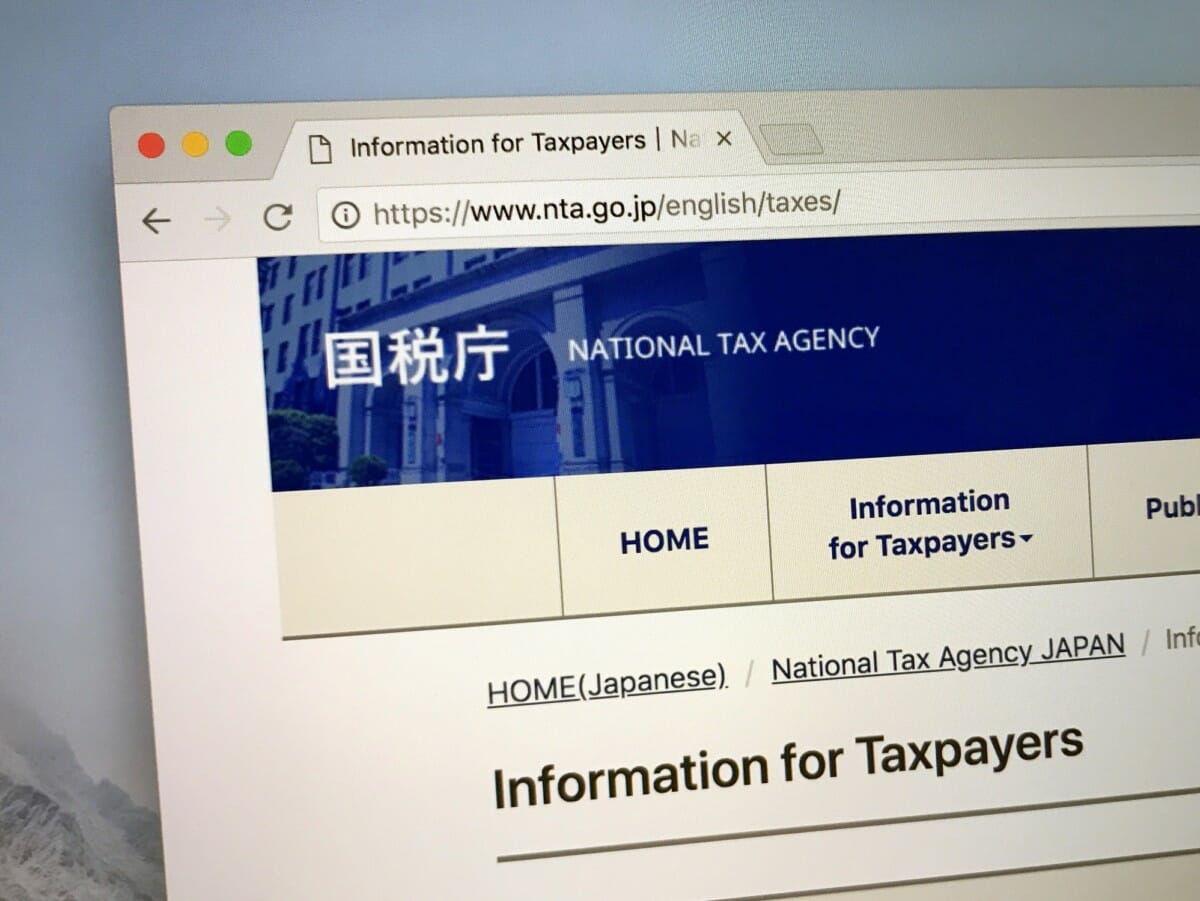While the way taxes are paid and filed changes between countries, income tax is a reality no matter where you live.
When planning on moving to Japan, even if it’s only temporarily for work, knowing how their income tax system works is crucial to ensure you abide by all applicable tax laws.
Who Has To File Income Tax In Japan?
Anyone who earns income in Japan or who lives in Japan and earns a taxable income will have to file taxes in Japan. Someone with permanent ties to Japan, such as a Japanese citizen, will have to file taxes in Japan even if some or all of their income comes from a foreign source.
Those who may be working in Japan, even on a temporary basis, will have to file income taxes on the income earned in the country.

This applies to non-residents who are living and working in Japan for a period of time. Nonresidents who also earn income from outside of the country are likely not going to have to claim that income on their Japanese taxes.
Filing Taxes In Japan
Income tax is filed each year in Japan and is based on the previous calendar’s year income and deductions.
Like many countries, Japan operates on a self-assessment tax system. This means that individuals are required to fill in a tax return every year and submit it to the government.

However, most employees will also have income tax deducted from their income, which can be seen on their pay stubs or related income records.
For those who fall into this category and don’t fall into any of the exception categories, they may not have to file and submit a tax return as the government has the necessary data already.
Adjustments will be made if needed once a person’s total income for the year is known, and if needed, a person will either receive a refund or will be asked to pay additional taxes owed.

Some of these exceptions revolve around the amount of a person’s taxable income for the year, as well as if the person left Japan before the calendar year ended.
Additionally, if a person has multiple sources of income, earns self-employment income, or doesn’t have tax automatically withheld from their income, they will have to file their own taxes.
Income Tax Deadlines In Japan
Income tax in Japan is due on March 15th of the calendar year after the tax year has ended. For example, income earned in 2022 will have to be filed on an income tax return on or before March 15th, 2023.
Japans National Tax Agency Official Website
Tax season starts in the middle of February, so there’s a fairly small amount of time one has to file and submit their tax return.

Taxes can be filed in several ways for a taxpayer’s convenience. One can go to their local tax office to submit their taxes, which is known as a zeimusho in Japanese.
Bureau Of Taxation Japan Official Website
There are also ways to file a tax return online or fill in the paperwork and mail it in.
Types Of Taxes Paid In Japan
There are multiple types of taxes that are expected to be filed and paid in some capacity when one lives in and/or works in Japan.
There are personal income taxes and property taxes that must be paid each year for homeowners. If someone runs their own business or earns self-employment income, there is also a prefectural tax known as enterprise tax that they will have to file and pay.
If someone owns a vehicle in Japan, including a bus, car, or truck, there are also a few types of taxes they are expected to pay in relation.

There is a car tax paid yearly by these individuals, as well as a tax paid at the time of purchase and a tax paid at the time of inspection. For those who own motorbikes, there are municipal taxes annually.
In terms of taxes paid when making purchases, Japan does have its own goods and services tax. In most cases, the taxes charged are 10 percent of the purchase, unless the purchase is food or drinks, in which case the rate is 8 percent.
However, restaurant food and alcoholic beverages don’t fall into the 8 percent tax category.
The purchase of alcohol and tobacco also involves paying taxes, though those taxes are usually advertised within the price at retailers. Additionally, there’s a tax paid on gas.
Japan’s Local Income Tax
Just as people will pay both state and federal taxes in the United States, Japan has its own version of state tax known as a local tax.
This is a tax that is charged based on which prefecture and/or city a person lives in. The amount a person has to pay will also be based on where they live. Generally speaking, the local income tax rate falls around 10%.

The Income Surtax
As of 2013, there is an additional tax known as a surtax that one can expect when filing income taxes in Japan.
The percentage of this tax is just over 2%, and the resulting amount will be based on that person’s individual income situation.
Non-Resident Tax
A non-resident who earns income in Japan will see their income taxes structured a little bit differently than a local would. There is typically a tax rate of just over 20% that non-residents will have to pay in any income earned in the country. They are also responsible for paying the income surtax.
Depending on a non-resident’s residency status at the beginning of the next tax year, there is a potential that they will also be expected to start paying their prefecture’s local income tax.

One important distinction to remember is that, depending on a non-resident’s country of origin, there may be an existing tax treaty between Japan and an individual’s home country.
This means that there can be special tax rules that must be abided by in conjunction with Japan’s rules.
Income Tax Rates In Japan
As with many other countries, Japan has designated income tax rates based on income earned in the year. As expected, the income tax rate goes up as a person’s income goes up.
Income tax rates can fluctuate between 5% and 45% of income earned, and there is a range of income one can earn before their income tax rate goes up.
Additionally, there is a certain amount of income one can earn that isn’t taxed. This is known as a basic exemption amount.

Furthermore, there are various deductions that one can claim on their income taxes that can help to reduce the amount of income tax someone has to pay.
Many of these deductions are similar to deductions that many other countries have, such as deductions for children in the home and medical expenses paid throughout the year.
The prefectural income tax rate is 4% regardless of income, and the municipal tax rate is 6% regardless of income.
Those who are expected to file enterprise tax due to earning self-employment income will have to pay between 3% and 5%, with the rate depending on the type of business the individual operates.
Paying Income Tax Owed In Japan
Once you have filed your taxes, if you determine there’s an amount owed, it should be paid in full by March 15th; in other words, your payment is due when your income tax documents are due.
If you don’t have your taxes withheld on your paychecks, you are expected to pay taxes a little bit differently.

Two installments will be enacted for you wherein you pay an amount towards your taxes two times a year. These amounts are based on your estimated income for the year and are paid in the tax year that you’re earning that income.
For example, when earning income in 2022, you will be paying installments for your income earned in July of 2022 and November of 2022, with any amount owing being due in March of 2023. However, if you ended up paying more in installments than you ended up earning, you’ll get a refund.
In terms of prefectural taxes that aren’t withheld on your paychecks, you will have to pay those taxes in quarterly installments.
These taxes are due during the following tax year, however. For example, for the prefectural taxes that you owe for the 2022 tax year, you will pay those installments in June of 2023, August of 2023, October of 2023, and January of 2024.










